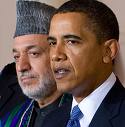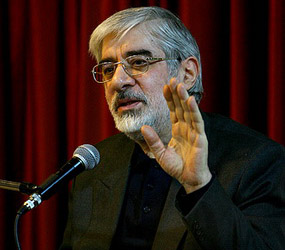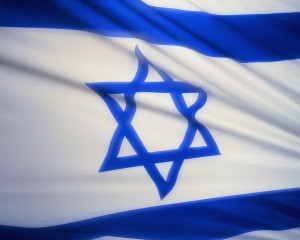 Student activist Majid Tavakoli, detained since 7 December, writes about his prison companions, Farzad Kamangar, Ali Heidarian, and Farhad Vakili, three of the five Iranians executed on Sunday:
Student activist Majid Tavakoli, detained since 7 December, writes about his prison companions, Farzad Kamangar, Ali Heidarian, and Farhad Vakili, three of the five Iranians executed on Sunday:They announced that Ali was being sent to ward 209. The phones in the halls were disconnected. I tried to call from the phone in my hall, but that too was disconnected.
When we went upstairs, Farzad said that they had announced that he too will be moved to ward 209, but it turned out to be a lie, as they ended up moving him to ward 240.
The announcement on Saturday afternoon had worried all of us. They usually announce the executions for political prisoners on Saturdays. An intense sadness took over my body, but Farzad kept saying that nothing was going to happen. He said they were only going to ask him a few questions. He knew what was awaiting him, but as always, he had a positive attitude and tried to make the best of the situation.
It was hard to believe. Until moments before, we were in the library together. Ali had stopped playing volleyball. He had washed his face and was getting ready. It was very difficult and painful. It was around this time every day, after Ali had worked out, that he would come over so we could study physics together. He intended to take the last two exams left so he could receive his diploma in June.
He had such high spirits that no one could ever believe that he was on death row. If you had a hard time believing Ali’s predicament, then it was impossible to fathom Farzad’s. He too was preparing for the university exams. The story of his engagement and wedding were also so heartfelt. It broke my heart when I thought about the courage of the young girl who was so taken by Farzad’s attitude and spirit that she married a person on death row.
It wasn’t the first time that I was witnessing my friends in this state. It was the summer of 2008 and I had met with friends in Evin prison’s ward 209. The first person I saw after my days in solitary confinement was Farhad. He was sharing the drawings of his young child. His incredible determination was a great inspiration to all of us. After a while, I also met Ali and Farzad. Ali always exuded calmness and Farzad was a solid pillar amongst us. He represented an entire nation alone and he stood proud and tall. He was always happy. he laughed and was hopeful, despite the hardships, the humiliation, the physically-grueling interrogations, and the unjust sentences by the Revolutionary Court. I was once again witnessing him in that similar predicament.
It was during the Sanandaj arrests that Farzad was transferred to Evin prison for the second time. He was wearing a neck brace, his shoulder was dislocated, and his teeth were broken, but his determination was stronger than ever.
When they transferred Ali and Farzad from Rajai Shahr prison to Evin’s ward 240 for execution, their presence in section 7 was excuse enough for those of us who were in section 8 to try and visit them regularly.
As they sat in solitary confinement waiting for the arrival of 4:00am, I was weak and on hunger strike. I was fully aware of why they had been transferred and I was unable to do a thing. Farzad kept encouraging me. He would say that everything is going to be okay and Ali continued to be calm, despite all the hardships.
During all the days when I was free, the uplifting meetings with Farzad and listening to his warm voice were a source of strength for my mother. It made me realize that a human being can achieve anything, even in the worst circumstances. But they killed my older brother, a Kurdish brother whom I loved with all my heart. He was my brother and my teacher- a teacher who represented resistance. He was someone who represented all of Iran’s children. I learned from him the ABC’s of resistance against the worst form of torture, deceit, and false accusations against people. I learned the role that faith plays in a person’s life when they face such hardships. I came to the realization that continuous visits to interrogation rooms and the narrow halls of solitary confinement may defeat your body, but they will never make you surrender or take away your soul, your thoughts, and your opinions. He was my teacher. He was a teacher who taught me to always smile and said that regardless of our differences, we can treat everyone humanely with the respect they deserve.
Now he is gone. He was unwilling to say goodbye and kept repeating, “I will see you tomorrow.” He didn’t let me embrace him and kept repeating, “I will see you tomorrow.” I know that he took those courageous steps together with his friends as he approached his final destination. He promised repeatedly to never allow the hatred of tyranny to break his spirits and remove the stool from underneath his feet. He promised to remove the stool from underneath his feet by himself. He never allowed the long reaching arms of tyranny to take his life. I am certain that he kept his promise. I am certain that he also smiled in the face of death – a heroic smile that has left us, but will remain eternal.
He and his innocent friends are gone, but their memories will live on forever. He left knowing that he was a good person and became an eternal teacher- a teacher who now represents resistance in the history books. He is a pillar of hope. He is an ever-lasting encouragement and beacon of light for all those who seek freedom. He is no longer with us, but we can still remember his memory. We will remember the time when the Ministry of Information was forced to kneel in front of the spirit of an entire generation; a Ministry of Information that will finally be forced to confess to its crimes so that when there are arrests after Farzad’s, the summer of 2008 is never repeated in Evin’s ward 209.
They had removed the airway passages and taken away our mail box. They believed that they could silence our spirits, but Farzad kept smiling in protest, demonstrating that we will stand strong and tall forever.
They took the hostages in order to demonstrate that they are tired of our resolve. But our friends showed that the power of tyranny is nothing in comparison to the strength and resolve of the brave children of Kurdistan. Farzad always stated that his interrogator said, “You are laughing in our faces when you continue to study and plan to marry.”
Farzad, Ali, and Farhad’s fighting spirit was incredible. I sit today in the memory of a few friends who were more than just a few. Farzad was a nation to himself, Ali was a great friend to all, and Farhad was a mountain of strength. Farzad was such an inspiration that when we were feeling depressed and down, even though he was ordered to stay away from other political prisoners, knowing that he was present brought hope to all those in section 7. I would use any excuse to go to the library, even for a few hours, just to be next to Farzad.
Even though Farzad left us hopeful for the future, he was nevertheless disappointed about a few things. He regretted the fact that a group of people want to confiscate everything and arrest everyone. He was writing a letter entitled, “I am an Iranian. I am an Iranian from Kurdistan.” His goal was to express the fact that even though being a Kurd meant being subjected to oppression and deprivation, the plight of the Kurdish people with regards to their ethnicity was an important one. He tried very hard to bring attention to the challenges in Kurdistan and the issues associated with ethnicity and minority rights. He was worried and sad until the last moments, that because of differences in opinion, attention would not be paid to the ethnic and human rights of the Kurdish people.
He was an offspring of the people of Kurdistan and worried about their fate. When he left us, he would have wanted someone to assure him that his ideals and lessons will bear fruit one day. He wanted everyone to know that if the violence, deprivation, and oppression in Kurdistan does not end, many more innocent people will become hostages and be arrested under false accusations, just like he was.
Oh, how evil is tyranny when it is fearful that it will no longer be able to commit crimes- The crimes that lead Farzad to teach us to resist? They feared his smile and perseverance and that is why they disconnected the phones.
It was this fear that led them to cancel any gatherings and distribute sweets and dates. It was this fear that led them to insist that we not talk of him, even though nothing they said stopped us from keeping his memory alive and strong. It was this fear that led them to resort to martial law. It was this fear that led them to shout that they had executed terrorists, when everyone was fully aware that those executed were not terrorists. They are fully aware that there were no bombs involved. They know how they lied to incriminate Farzad. They also know why they sentenced him. Even though they killed him, they were unable to destroy his spirit. Because his death allowed us to realize that tyranny can never take away the children of our nation without paying a price.
Today I went to the library once again. Farzad and Ali were not there. Farzad was not there to tell me about past memories and our friends. He was not there to bring back hope, to sit with me and discuss ways to end this suffering and tyranny. He was no longer there so we could talk about the possibility of a bright future and sing a song of freedom.
Ali was not there to bring calm and serenity to the library as we sat leafing through the books. Even though they were not there, the memories of Farzad, Ali, and Farhad remained strong. I promised Farzad I would not cry as it would only glorify oppression and tyranny. But I want my brother Farzad to know, that like all the other children of this nation, I have made a vow to never forget him and continue his cause for freedom.
Majid TavakoliEvin PrisonMay 11,2009
 Thursday, May 13, 2010 at 12:58
Thursday, May 13, 2010 at 12:58  Juan Cole writes in light of Afghan President Hamid Karzai's visit to Afghanistan:
Juan Cole writes in light of Afghan President Hamid Karzai's visit to Afghanistan:



